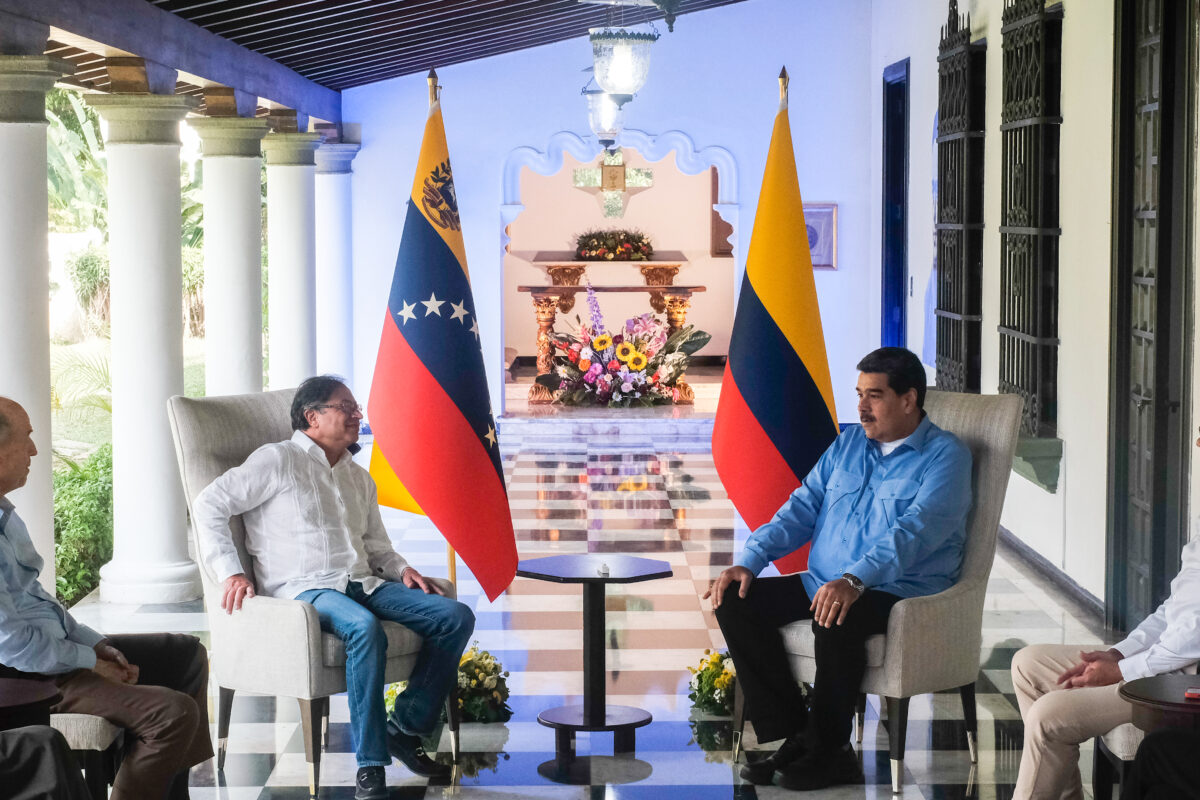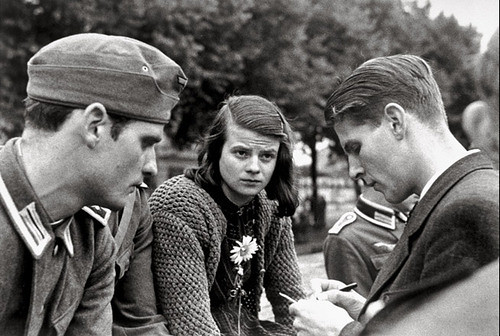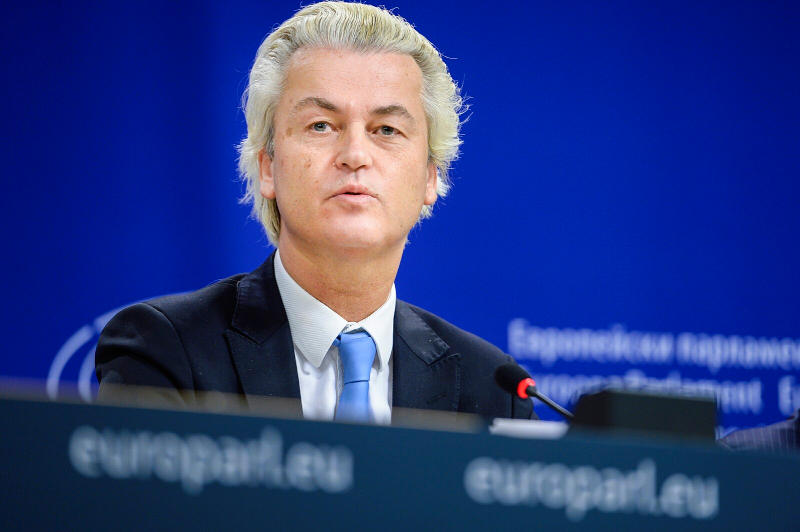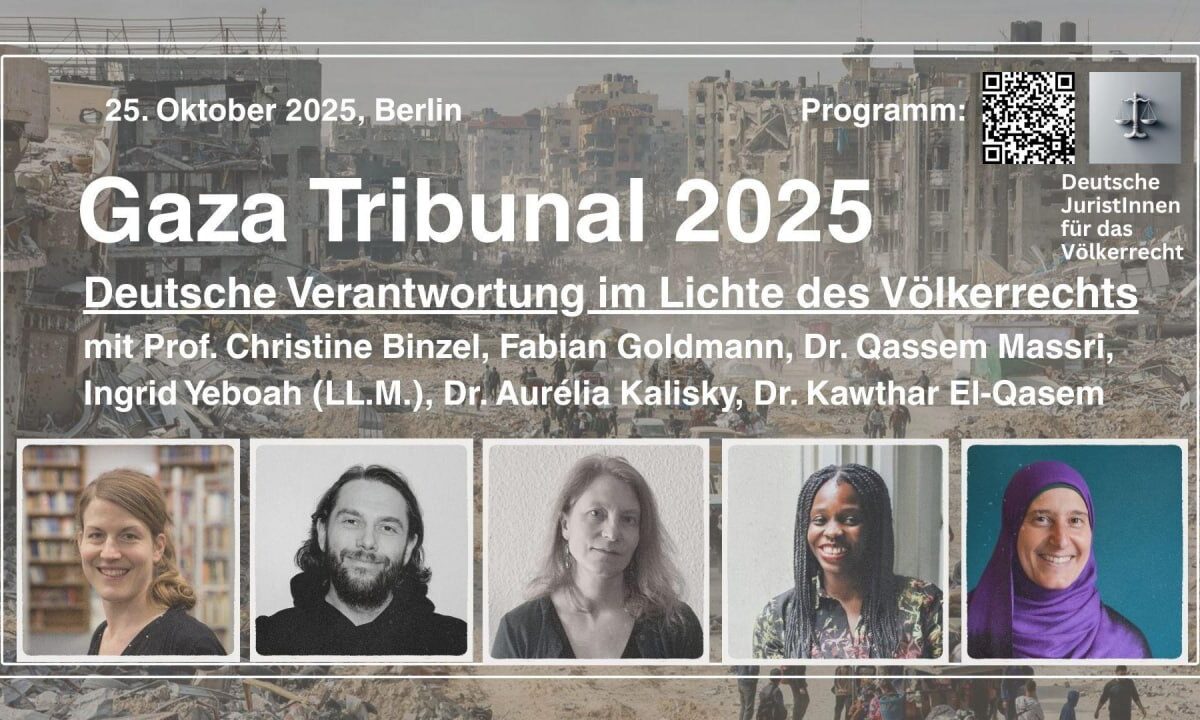To all my male friends
who try to convince me that we “achieved gender equality”
because women can work as CEOs.
To all women
who are a #girlboss and try to convince us
that we are responsible for our own success.
To all those people
who are complicit in the perpetuation of
the patriarchal, neoliberal, and racist capitalist agenda.
What does it mean to live a feminist life? If feminist ethics refer to the opposition of oppressive societal structures that privilege men over women, what does a daily embodiment of this opposition look like? Throughout conversations with my male friends and family members, I have often encountered the argument that there is no need for feminism in daily life anymore. We do not need to oppose structural oppression of women, because there is none. Women can work and they have the opportunity to become CEOs. And if women are not financially independent, it is not the patriarchy’s fault but instead, their own decision to stay at home. At least, that’s what they argue. If you agree, I have to tell you that you are living under a false illusion. This illusion is called neoliberal capitalism and is based on gendered and racist structural exclusion. However, I can see why you might believe this deceptive vision of reality. If I search for “female empowerment” on the internet, I am bombarded with the so-called #girlboss attitude. This ideological movement is promoted by financially successful women, portraying the narrative that any woman can live their dream of becoming a successful entrepreneur. She just needs to work hard enough, or to use the words of Kim Kardashian, she just needs to “get her fucking ass up and work”. This essay aims to deconstruct the illusion that the girlboss movement indicates gender equality. In the following, I will reveal to you why this logic operates within a patriarchal framework and further perpetuates interconnected systems of racist and classist oppression. Aiming to present you with an alternative conceptualization of how to approach collective women’s liberation, I will first explain the concepts of the girlboss ideology. Then, I will draw a connection between the girlboss narrative and the neoliberal agenda, highlighting that it operates within a patriarchal framework. Further, the racist and classist dimension of the narrative will be examined, arguing why privileged successful women continue to comply with systems of oppression. Throughout my analysis, I will draw upon different feminist scholars and elaborate on how their ideas play into the debate on girlboss feminism.
To begin with, let us re-examine what the girlboss movement stands for. Sophia Amoruso described the movement for the first time in her 2014 book #Girlboss, where the word represents the idea that every woman can become financially successful if she works hard and takes responsibility for her life. The focus on individual “agency”, “self-responsibility” and “hard work” resembles the neoliberal ideology and creates a feminist subject who is occupied with her individual economic success, accepting full self-responsibility for her goals, as Catherine Rottenberg describes in her 2013 paper on neoliberal feminism.
If women’s empowerment is equated with female entrepreneurship or leadership, it seems that the proponents of that logic are influenced by Betty Friedan’s The Feminine Mystique (1963). Friedan critiques the cultural norms that push women into the domestic sphere (p.32). She argues that women are deeply dissatisfied with their condition and can only find true fulfillment when pursuing a professional career (p.32). Whilst Friedan criticized cultural and gendered norms for bringing women into this condition of dissatisfaction, girlboss entrepreneurs refrain from blaming patriarchal structures. Instead, they emphasize the individual responsibility of women to climb up the professional ladder and become satisfied with their lives. Either way, achieving financial or entrepreneurial success is posited as a realization of female liberation and gender equality. Consequently, the idea is that successful female entrepreneurs escape patriarchy by challenging gendered labor division.
Following this argumentation, there are feminist voices who would probably applaud the #girlboss we find online. One of which is Simone de Beauvoir. In The Second Sex (2009), de Beauvoir highlights that social and existential conditions constructed women as the “the other sex”, meaning that they have been socially placed in an inferior position to men (p.32). De Beauvoir argues that women submit to their constructed condition of inferiority and thus, emphasizes upon women’s responsibility to stop complying with that role (p.28). The girlboss mentality is focused on hard work and taking risks. This corresponds to the existentialist standpoint of de Beauvoir, who calls on women to transcend their socially ascribed inferiority. While one might think that female entrepreneurs transcend gendered labor division, they do not truly challenge patriarchy. Have you not wondered why there even is the need to call a successful woman a girlboss? Can she not just be a successful woman? Or even more simply, a successful entrepreneur? Certainly, this semantic superficiality already highlights the patriarchal and patronizing undertone of how women are perceived in the professional world. But if now you think that merely abolishing the word is enough to truly challenge the roots of patriarchal logic, you are mistaken. Girlboss women do not escape their role of the “other” (p.32). Instead, they strive towards resembling the “default norm”, and this norm continues to be the male entrepreneur, as Susan Marlow and Janine Swail examine in their 2014 paper, where they critique the manner in which gender influences are being studied in entrepreneurship research. De Beauvoir unfortunately falls into the same trap when thinking about female liberation. Hooks examines that de Beauvoir positioned herself as an exceptional woman who had the “mind of a man”. Thereby, de Beauvoir continues to operate within patriarchal paradigms, because she considers women to be capable of reaching the gendered, male ideal. Consequently, neither de Beauvoir, nor the girlboss challenge the patriarchal roots of gender inequality.
Continuing to operate within patriarchal paradigms, the girlboss narrative devalues any work done outside the entrepreneurial or professional world. A 2022 policy brief by the Forum for Research on Gender Economics (FROGEE) outlined that all domestic and unpaid care work is predominantly done by women. Keeping this in mind, the girlboss narrative perpetuates and reinforces the patriarchal devaluation of housework. It is when financial and entrepreneurial achievements are equated with success and liberation that we must remember Silvia Federici’s call for Wages for Housework (1975). Federici emphasized that gendered labor division is part of the capitalist logic that devalues women’s labor in the domestic sphere and keeps capitalist exploitation running (p.78). One can draw a link to contemporary neoliberalism, which “has no lexicon that can recognize let alone value reproduction and care work”, as Caroline Rottenburg argues in her 2018 article, Women who work (p.8).
While the girlboss movement partly transcends gendered work division, it overlooks that domestic work remains devalued and unpaid. Thereby, it continues to operate in capitalist patriarchal frameworks and fails to challenge systemic inequalities at its root. So, what if we wage housework and stop complying with the neoliberal logic that entrepreneurship equals success? What if we call mothers, cleaners, and all other women who are deemed to be “non-aspirational” girlbosses as well (p.1079)? Wouldn’t this perspective deconstruct the idea that only entrepreneurial success, a domain that is still predominantly occupied by men, is true success?
Having revealed why girlbosses operate within and thereby perpetuate patriarchy, let us unravel the mechanisms of how their success creates new and intensified forms of racialized and class-stratified exploitation. Or did you really think becoming a girlboss is attainable for all women? In reality, only a few privileged women can emerge as girlbosses because their success relies on the racist and classist domination of other female comrades (Rottenberg, 2013, p.434). When aiming to transgress gendered work divisions, girlboss feminists focus on sex as the only marker for female identity. In her 2013 essay, True Philosophers, Hooks emphasizes the need for a more nuanced understanding, highlighting that female identity and experience are “shaped by gender, race, and class, and never solely by sex”. She poses a question that entrepreneurial power women tend to ignore: Who will be called in to take care of the domestic sphere and housework if more women enter the domain of entrepreneurship, which is considered to be the male sphere, asks bell hooks, in her 1984 book, Feminist Theory – From Margin to Center. The reality is that, most often, women of color, poor, and immigrant women serve as unacknowledged care workers who enable professional women to strive towards „balance“ in their lives. Hence, when examining the success of girlboss women, we must not forget the racist exploitation that sustains it.
What about women who can not afford to pay for a care worker while pursuing their professional career? What about single mothers who need to earn money and simultaneously raise a child and do the housework? When women are expected to continue their traditional role as mothers whilst becoming successful businesswomen, we must become suspicious. The idea that any woman has the opportunity to become a successful entrepreneur is an illusion and we must not forget that this opportunity is largely based on class privilege.
One might wonder why girlboss women comply with systemic classist and racist oppression of other women and thereby, obstruct collective women’s liberation. The paradox that individuals continue to be complicit with oppressive structures that they individually manage to “escape” from is not uncommon. Barbara Applebaum examined in her 2008 essay White privilege/white complicity: Connecting “benefitting from” to “contributing to”, how benefiting from a system of exclusion leads to one´s participation within it. Similarly, Audre Lorde emphasizes that white women are complicit with several mechanisms of systemic oppression, as they focus on their “oppression as women and ignore differences of race, sexual preference, class, and age”, in her 1984 essay, Age, Race, Class and Sex: Women Redefining Difference. Girlboss women focus on sex as the marker for exclusion from the male professional sphere and are heavily influenced by the neoliberal agenda of individualized success. Therefore, I argue that successful female entrepreneurs are being tokenized by the neoliberal agenda. I base my claim on Wendy Brown’s conceptualization of neoliberalism being not merely an economic system, but a certain mode of thinking that becomes deeply internalized in the “inner workings of the subject“. Thereby, neoliberal values of self-responsibility and individualization infiltrate the minds of those girlbosses, making them believe that they transgress patriarchy when in reality, they are deeply stuck within it. They are a token for the broader neoliberal agenda, as they perpetuate the illusion of female empowerment.
When focusing on white, privileged middle-class women as the archetype for female lived experiences, successful girlbosses leave no space to address differences among women. Kimberle Crenshaw critiques this ignorance rampant in contemporary feminism, in her 1991 journal article Mapping the Margins: Intersectionality, Identity Politics, and Violence against Women of Color. According to her, those movements often fail to center intersectional identities which consequently leads to separation and tension amongst women. Rottenberg (2013) similarly concludes that women become increasingly separated rather than united in their actions. She draws the connection to the neoliberal agenda which frames the feminist social question in highly individualistic terms and consequently, erases the opportunity for genuine collective liberation (p. 419). I assume you agree that focusing on your individual success creates disregard for the interconnected struggles of other individuals. And this condition is highly problematic.
The ignorance of those “interlocking systems of domination”, to speak in hooksian terms, makes white, privileged, and successful women complicit in the domination of others (hooks, 2012, p.235). Thereby, girlbosses continue to coexist in patriarchal oppressive power structures, as they benefit from them. They seemingly made it out of gender-based oppression and universalize their individual experience to be achievable for all women. Girlboss culture operates within and thereby, reinforces the capitalist depiction of success in terms of finances and profession. Not only does it fail in challenging the neoliberal conceptualization of success, it also disregards differences within women and thereby, eliminates the opportunity for united female solidarity and liberation. Promoting girlboss feminism feeds into into patriarchal, racist, and capitalist systems of oppression. Therefore, I want to provide you with an alternative approach towards collective women’s liberation.
Drawing upon Lorde and Crenshaw, the denial of differences within groups leads to tension and separation among them (Lorde, 1984, p.115; Crenshaw, 2013, p.1242). Hence, we must acknowledge different female experiences and identities, and think about patriarchy as being interlocked with racist and capitalist modes of exploitation. This requires us to bring to attention other feminist movements that challenge neoliberal values and demand economic, cultural, and social change. The girlboss promotes the idea of women achieving success, within a patriarchal, classist, and racist logic. She prioritizes individual success within the system rather than changing the system itself. She ignores that this path is predominantly accessible to white, privileged, middle-class women and fails to address different lived experiences of less privileged and marginalized communities. But “the master’s tools will never dismantle the master’s house”, as Lorde famously noted. In that sense “the master’s tools” are the patriarchal, neoliberal agendas of individualized success. And while I do not intend to blame girlbosses for wanting to achieve entrepreneurial success, I certainly intend to blame them for creating the illusion that this is the ultimate path to gender equality. I blame them for promoting a one-size-fits-all approach to female empowerment while ignoring that this approach is deeply hostile and exclusionary for women who do not fit this one-sized, privileged archetype.
We need to find tools that are not the “master´s”. Hence, we need to find tools that do not repeat the patriarchal, neoliberal and racist agenda. This might include re-conceptualizing our societal views on what it means to be successful. It might include waging housework and refusing the narrative that female entrepreneurs are the ideal successful women. It might include creating a world in which all women, no matter whether they are mothers, housewives, care workers, or entrepreneurs, are being recognized and cherished for the work they do. In doing so, we must always work towards abolishing neoliberal blaming of individuals and publicly reveal the structural inequalities that allow for the success of the privileged few. Whilst this approach will certainly be uncomfortable for those of us who have the privilege to become a girlboss, we must dismantle the systemic oppression upon which this privilege builds. And most importantly, we must face our own complicity within those dynamics.
Lee-Ann finished her Bachelor of Liberal Arts and Science, majoring in Politics, and is a certified teacher and student of holistic health. In her work, she aims to combine arts, culture, and politics to raise political awareness on a community level.




